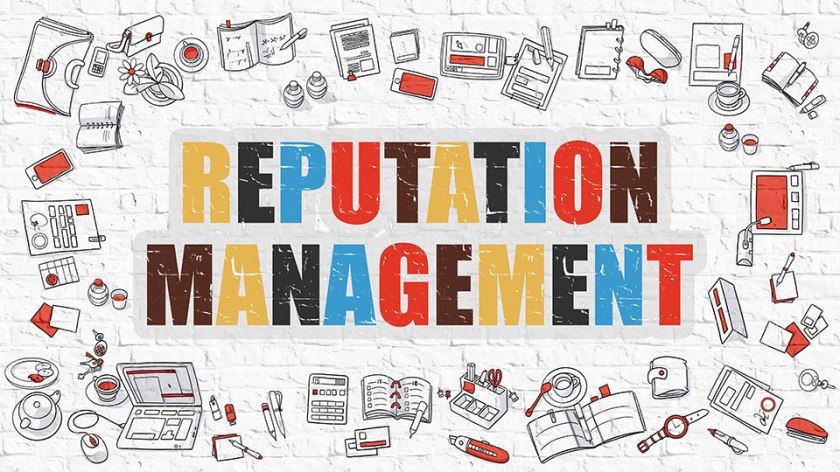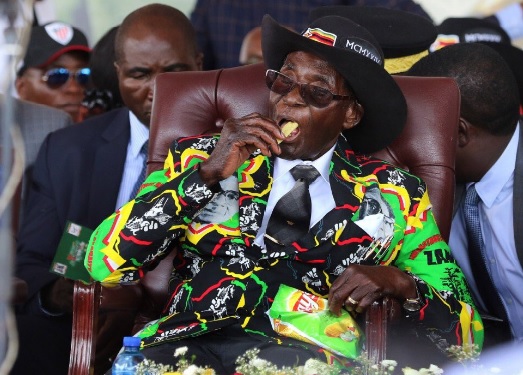
By Tabani Moyo
It is now a reality that the bulk of the countries, organisations, entities and persons are struggling with management of their respective reputations. This is due to the sad fact that the bulk of these establishments confuse image for reputation. In return, their entire strategy and value proposition is geared towards managing image instead of reputation. This is true for Zimbabwe as a country, which has seen the primitive and gluttonous squander of the national reputation with reckless abandon.
Reputation management defines the aggregate effects of identity/ brand and image on the stakeholders’ overall evaluation of an organization, in this case the country. In other words, the overall estimation or regard in which its stakeholders hold the country to, as either good (or bad) to her citizens, a trustworthy (or untrustworthy) service provider, a strategically responsible (or irresponsible) citizen among a league of nations . Therefore, reputation does not originate from the communications office, or the marketing plan or individual behaviour. It springs from experiences, thought processes and values of people who see themselves as stakeholders to that nation or organization.
In summary, image is taken to mean the view of the country held by external stakeholders, especially investors and other nations. Identity is taken to mean the citizens’ view of the country, that is, ‘how do we see ourselves?’ Whereas, reputation is taken to be a collective term referring to all stakeholders’ views of reputation, including identity and image.

Pitfalls of reputation management in polity
Having noted the foregoing, in order to drive the message home, one has to immediately look at the behaviour of our political parties in their attempt to manage reputation.
The millennium scandal is that of keeping up appearances as the political formations compete for a clean image outlook rather than focus on a more holistic approach, the 360 degree outlook of reputation management. The various formations of the Movement for Democratic Change and its splinter groups are positioning themselves for an image of a united MDC through what they call an alliance. The irony is that the ‘united front’ is leading to vicious cracks within the rank and file of the respective parties that are supposed to form the whole. It is a typical case of splitting in an attempt to unite. The People’s Democratic Party (PDP), headed by Tendai Biti is alleged to have disintegrated, as the leadership is not sharing the common vision of the proposed alliance. The Morgan Tsvangirai led MDC-T is equally engulfed in the same flames which if not managed properly is currently pointing to yet another disaster. This is what happens when organisations are concerned with image management rather than reputation management. Zimbabwe People First has taken new shape, form and route after splitting an estimated three times. The centre at the end will tilt to the cliff as the organisations sacrifice internal stakeholders, who in this case are the drivers of the ultimate reputation of their respective organisations.

The same is true for the ruling party. At each turn of events, the party portrays itself more united than ever as its eyes are fixated on image management rather than reputation centric approaches. The party believes that it can in one way or the other alter the course of its narrative by impressing that it is united while the internal stakeholders know better. In most instances, the party has attempted to play the blame game, by accusing the media of fabricating the intensity of factionalism, which is cancerously eroding its capacity to govern. As long as it does not address the crux of the matter and opt for the easy option of playing the blame game, then its reputation will remain in tutus.
It is becoming evidently clear that Zanu PF has become a two-in-one party, which is in self-conflict due to the perennial succession question that remains unanswered in the face of an aging and increasingly adamant leader. When the internal stakeholders have locked horns around the thorny issues at hand, it’s difficult for the entity to achieve a strategic fit that is desirable.
The national reputation crisis
The same complexity holds water for the nation of Zimbabwe. At every turn, you hear of the leadership attacking the press for what they term ‘creating a negative reputation for Zimbabwe’. As I noted in the introductory stages of the article, reputation springs from experiences, thought processes and values of people who see themselves as stakeholders of the country.
In this regard, the reputation ambassadors of the country by default become the country’s President, ministers, cities, parastatals and the citizens. Way back, Zimbabwe’s reputation was that of securing food requirements for the region and a strong education system that led to high literacy rates. However, that reputation was left burning in the flames of the passage of time. This reputation was ‘burnt’ beyond recognition to the extent that now whenever the country’s CEO flies out of the country, instead of seeking to galvanize a progressive reputation, he returns with a headline that shows that he has in essence further dented the very same damaged reputation.
Our state enterprises are fertile grounds for corruption and basically non responsive to the citizens’ needs. In addition, the public has lost confidence in the conduct of the republic police, which has allegedly become the bedrock of corruption, non-performance and complacency. Our airline has squandered every ounce of the reputation that it used to wave so high at independence; the same is true for the national broadcaster and all other failing state enterprises.
General plebiscite and the reputation of ZEC
The Zimbabwe Elections Commission’s footprints are marred by allegations of facilitating for electoral fraud. This is the dilemma that the country has to address as we head towards the impending 2018 elections. With such a low reputational ranking, is it possible to deliver a democratic verdict? If Zimbabwe was serious about regaining its strong reputation as a competitive nation that is willing to join the entire globe in the manner in which it handles its business, this would be a good time to effect sweeping reforms so that the various stakeholders will buy-in and showcase Zimbabwe as a progressive nation. Sadly, narrow and selfish political interests override national objectives and the collective good of a nation.

Currency crisis and reputation of poverty
Recent developments have led to economic panic and dragging the nation back down memory lane, to the untold suffering, poverty and lack that were the cornerstones of the 2007 – 2008 period. The authorities should not engage in blame-shift antics. This is the national reputation, a reputation which speaks to the fact that the government of the day does not in any way respect or responds to the citizens’ needs. It is part of the national story, which will remain part of its trajectory.
Lessons from UK Labour
Politics should be about transforming people’s lives. It should mobilise and inspire a society towards a common goal of progression and sustainable existence. This is the lesson from Jeremy Corbyn’s Labour Party which is positioned on the value proposition, “For the many. Not the Few”. I give it to the leader Corbyn who has since built a rock solid reputation for his party as a government in waiting through addressing the wide-ranging issues that have attracted the youth back into believing in politics. Through this reputation, Corbyn’s party will change the politics of Britain and gain the international relations instruments that were lost when the Conservatives got into power. Zimbabwe on the other hand, is stuck in trivia as the country drifts to the 2018 elections. The leadership, across the political spectrum does not articulate any transforming ideas. Its all about power, without any clear narrative on how to utilize it! Zimbabwe deserves better.

Having noted the above, one will be quick to make the following recommendations for organizations or nations in their quest for managing reputation:
- Leadership vision and desire: citizens and stakeholders at large attach a high value to servant leadership that is perceived to be led by groups of people who have a vision and desire. The county, political parties, groupings and organisations must also be perceived as being able to realise their vision. So far, none exists!
- Knowledge and skill: A country can only be as good as its citizens, who are major determinants of current and future success. As drivers of innovation, the optimum use of their talent is paramount to growth. These critical assets must be given space to showcase their capacity and be rewarded so that they remain loyal and strengthen the reputation of the country which promotes the realisation of its national promise and dreams.
- Emotional connections: citizens attach emotions to national services and products. This includes the perceived values and culture of a country. There is need for Zimbabwe to invest in the genuine growth of the local industry and products that can make Zimbabweans proud of their country once again.
- Quality: this strategy is concerned with products or services and whether a country is seen to be meeting citizens’ requirement consistently. This speaks to the supply side of our energy, health, education, water, land, security, financial services and other competing needs. For Zimbabwe to gain a positive reputation, it must be willing to answer this hard question.
It is paramount to note that Zimbabwe has a strong human capital base which remains untapped. This human capital is fast growing obsolete because the country is failing to provide opportunities for the citizens to utilise their skills and the ever increasing brain drain. In addition, the national leadership is not bothered with the way it has squandered the national reputation focusing on narrow and personal gains. A positive reputation is an inheritance to the next generation. When we squander it, we are pushing a legacy debt down the throats of the many generations ahead.

